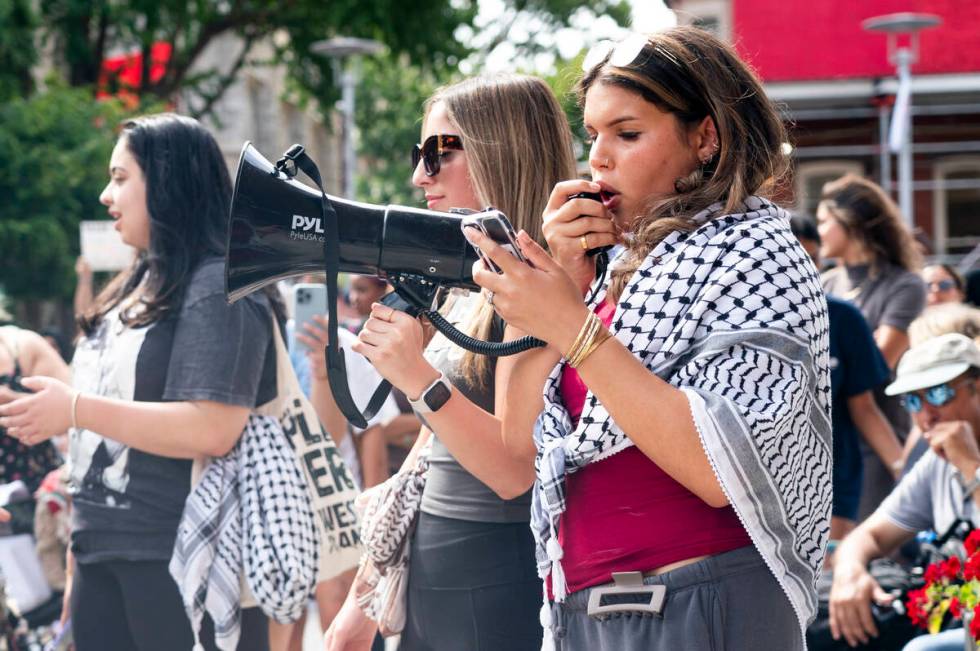As US colleges raise the stakes for protests, activists are weighing new strategies

University of Southern California law student Elizabeth Howell-Egan isn’t allowed on campus because of her role in last spring’s anti-war protests, but she is keeping up her activism.
She and like-minded students are holding online sessions on the Israel-Hamas war and passing out fliers outside the campus, which is now fortified with checkpoints at entrances and security officers who require students to scan IDs.
“Change is never comfortable. You always have to risk something to create change and to create a future that we want to live in,” said Howell-Egan, a member of the school’s Students for Justice in Palestine chapter, which is calling on USC to divest from companies profiting off the war.
The stakes have gone up this fall for students protesting the war in Gaza, as U.S. colleges roll out new security measures and protest guidelines — all intended to avoid disruptions like last spring’s pro-Palestinian demonstrations and protect students from hate speech. Activism has put their degrees and careers at risk, not to mention tuition payments, but many say they feel a moral responsibility to continue the movement.
Tent encampments — now forbidden on many campuses — so far have not returned. And some of the more involved students from last spring have graduated or are still facing disciplinary measures. Still, activist students are finding other ways to protest.
Tensions over the conflict have been high on American campuses since the war began on Oct. 7, when Hamas-led terrorists killed 1,200 people in Israel and took 250 hostage. The war in Gaza has killed more than 40,000 people, according to Gaza health officials.
As the pro-Palestinian demonstrations took off nationally, Jewish students on many campuses have faced hostility, including antisemitic language and signs. Some colleges have faced U.S. civil rights investigations and settled lawsuits alleging they have not done enough to address antisemitism.